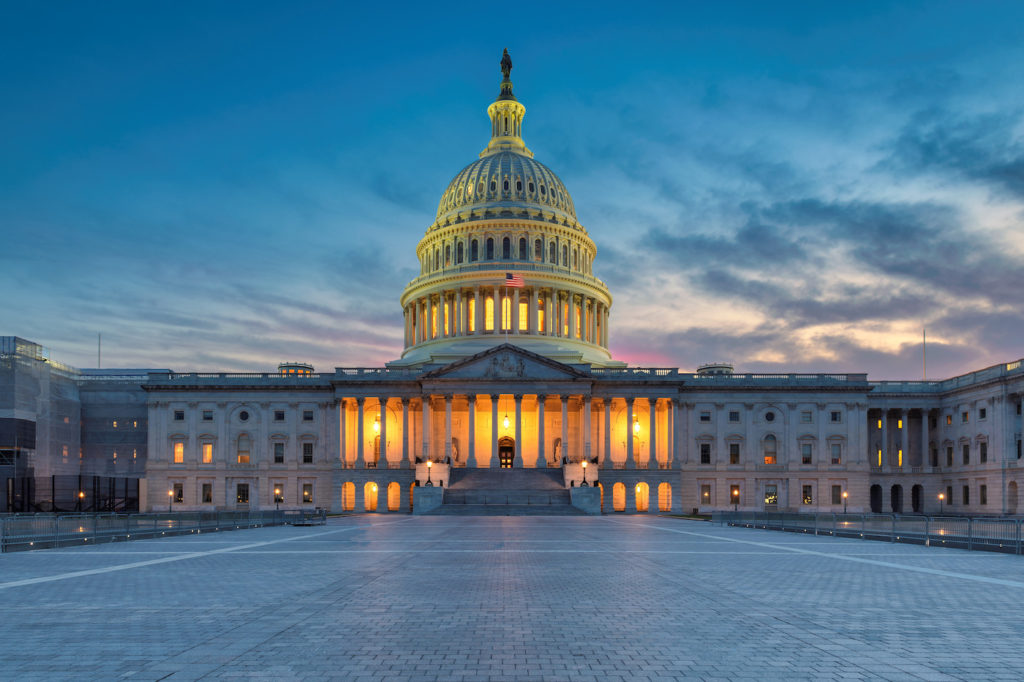On September 24, the House of Representatives passed a bill misleadingly named the Women’s Health Protection Act (HR 3755). The vote on this extreme abortion bill came down almost completely along party lines with all Republicans opposing and all Democrats, except for Rep. Henry Cuellar (TX), supporting. The bill’s name elides what would be its true impact: creating a federal law ensuring abortion on demand at any stage of a woman’s pregnancy.
House Democrats passed HR 3755 knowing it will go nowhere in the Senate, but the abortion lobby pushed this legislation after the Supreme Court refused to stop the new Texas law protecting the unborn. Pro-choice forces see this bill as a major victory arising from their now almost complete capture of the Democratic Party. But in 2022 House Democrats may look back and rue the day they went on record supporting an abortion bill so far out of the American mainstream. HR 3755 could be a turning point in the politics of abortion, but maybe not the one that the abortion lobby wanted.
HR 3755 Is Far Out of the American Mainstream
San Francisco Archbishop Salvatore Cordileone described HR 3755 as “nothing short of child sacrifice.” It would make abortion legal for any reason before the child can survive outside the womb, which is usually considered to be between 22 and 24 weeks of pregnancy. After viability is reached, abortion would be legal if an abortion services provider says that “continuation of the pregnancy would pose a risk to the pregnant patient’s life or health.” This language seems to allow restrictions, but in effect it eliminates limitations on late-term abortions. “Health” is not defined in the bill, but courts have considered emotional and financial concerns as “health.” Risk does not have to be physical or serious. Nothing in the bill requires an attempt to preserve the life of a baby who could survive outside the womb.
Start your day with Public Discourse
Sign up and get our daily essays sent straight to your inbox.HR 3755 is far out of step with public opinion on abortion law. Most supporters of HR 3755 simply describe the bill as “codifying Roe v. Wade” because six in ten Americans—58 percent in a recent Gallup poll—tell pollsters that they support that Supreme Court decision. But these polls are very misleading. A 2021 AP-NORC poll showed that 65 percent of Americans believe that all or most abortions should be illegal after the first three months of pregnancy.
Furthermore, HR 3755 would wipe out laws passed by many state legislatures that place restrictions on abortion and protect the health of women seeking abortions. These state laws include numerous provisions: bans on partial-birth abortions, requirements that abortions only be performed by doctors with hospital-admitting privileges, mandates that women seeking abortions be informed about fetal development and potential health risks, a required 24-hour waiting period before getting an abortion, bans on sex-selective abortions (which disproportionately impact baby girls), regulations on staffing and facilities where abortions are performed, and informed-consent laws.
HR 3755 could be a turning point in the politics of abortion, but maybe not the one that the abortion lobby wanted.
Polling data on these restrictions are limited, but last year the Kaiser Family Foundation found that 69 percent of Americans support requirements that abortion doctors have hospital-admitting privileges, 66 percent support a 24-hour waiting period, and 57 percent believe that women should have to be shown ultrasound images of their baby when seeking an abortion. In 2012, the Charlotte Lozier Institute found that 77 percent of Americans oppose sex-selective abortions.
HR 3755 may preclude the Hyde Amendment and other measures that prevent federal tax dollars from funding abortion; polls show six in ten Americans support this restriction. This summer, House Democrats made clear their intention to require taxpayer funding for abortion when they left the Hyde Amendment out of the annual appropriations bill for Medicaid (which, until then, had included the amendment language since 1976).
HR 3755 also threatens to negate abortion-related conscience protections. In recent years many health care practitioners and institutions (such as Catholic hospitals) have had to fight for their right not to be forced to participate in procuring abortions. By explicitly stating that this act would supersede the Religious Freedom Restoration Act, HR 3755 implies intent to remove conscience protections—or at the very least make it much more difficult for individuals to exercise their freedom of conscience.
How Did Congressional Democrats Arrive at Abortion Absolutism?
The Democratic Party’s path to embracing abortion without restrictions has been long. It is easy to forget that, when Roe v. Wade was decided in 1973, the divide between pro-life and pro-choice politicians did not fall neatly along party lines. Democratic President Jimmy Carter was opposed to abortion and favored federal restrictions. When the Hyde Amendment was first passed in 1976, 45 percent of House Democrats voted for it (and a quarter of Republicans opposed it). Then-Senator Joe Biden not only supported the original Hyde Amendment, but in 1977 voted against changing it to allow Medicaid to fund abortions performed when a child was conceived through rape or incest.
When I was elected to Congress in 2004, the Democratic Party had shifted to a full-throated support of legal abortion, but the party platform argued that “abortion should be safe, legal, and rare.” At that time, it was still possible to be a pro-life Democrat in some regions, especially the South and heavily Catholic areas. However, from 2008 to 2010, Democratic Party leaders radicalized on abortion. In 2008, the Democratic Party dropped from its platform the statement that abortion should be rare. In 2010, after unsuccessful opposition from pro-life House Democrats, the Affordable Care Act passed with no restrictions on taxpayer funding of abortion.
In 2013, the Democratic Party had lost fifty-eight seats in the House over two election cycles. Of these losses, a sizable majority were districts where pro-life voters enjoyed enough influence that their Democratic Representative had voted in 2009 in favor of restrictions on the use of taxpayer dollars for abortions. For political reasons, party leaders could have backed off abortion extremism and welcomed pro-life candidates, particularly in pro-life-leaning districts. Backing pro-life Democrats where they would be viable challengers against Republicans would have been politically sensible.
Instead, the party drew even closer to the abortion lobby. Planned Parenthood, NARAL, Emily’s List, and other groups direct tens of millions of dollars to campaigns every cycle and supply armies of campaign workers. In 2018, these organizations focused on unseating me in my Democratic Primary race, spending more than $3 million along the way. I narrowly held on that year, but in 2020 I faced an even stronger assault. I was outspent by more than two-to-one and suffered a slender defeat.
It is easy to forget that, when Roe v. Wade was decided in 1973, the divide between pro-life and pro-choice politicians did not fall neatly along party lines.
The Abortion Lobby’s Strong Hold on Congressional Democrats
In some cases, the abortion lobby even extends electoral threats and intimidation to Democrats who are staunchly pro-choice. In spring 2019, I sought endorsements for the 2020 primary election from colleagues in the House and other local Democrats. I was denied an endorsement multiple times because of my pro-life position (which had become especially radioactive to Democrats in light of Alabama’s Human Life Protection Act that banned most abortions). Although many of these elected officials had strong pro-choice records and some privately supported me, they knew they risked running afoul of the abortion lobby by endorsing me publicly. In addition, five Democratic presidential candidates, a group that typically stays out of House primary politics, endorsed my main primary opponent during the 2020 election. And, of course, arguably the most obvious reflection of the abortion lobby’s power was then-candidate Joe Biden’s newfound opposition to the Hyde Amendment after 45 years of supporting it.
The abortion lobby is surely behind House Democrats’ near-universal support of HR 3755. A large proportion of Democrats in the House probably genuinely support the policies contained in HR 3755, but many might not. Democrats in marginal districts likely know that a vote for the bill could hurt them among swing voters. But because the bill was brought to the floor, reluctant Democrats were forced to choose between voting no (and risking the wrath of the abortion lobby) and voting yes (maintaining the abortion lobby’s powerful support).
The majority party almost never brings politically risky bills to the floor, especially when their partisan margin is so small—that is, unless there is a powerful outside interest lobbying the majority party. The Supreme Court’s decision not to block Texas’s pro-life law likely prompted pro-choice interest groups to call Speaker Pelosi immediately. Within a day, the Speaker announced that the House would vote on HR 3755. Pelosi took the very unusual step of casting a vote on the bill, something Speakers rarely do on any legislation.
Abortion in the 2022 Elections
The Supreme Court announced in May that it will hear Dobbs v. Jackson Women’s Health (which could result in Roe being overturned). If Roe is gone, Democrats could rally pro-choice donors and voters by pointing to states working on highly restrictive abortion laws. Politically speaking, Democrats could gain by losing Roe. Even before a decision on Dobbs is announced in June, Roe’s new vulnerability gives Democrats a natural opportunity to channel support, raise money, and energize pro-choice voters.
But instead of letting abortion politics play out organically, House Democrats passed HR 3755.
Perhaps the claim that HR 3755 does nothing more than “codify Roe” will become the dominant narrative and no Democrats will lose because they voted for it. But that may just be wishful thinking. Voting for HR 3755 has put Democratic representatives on record supporting abortion policy far out of the American mainstream. HR 3755 has presented evidence to voters that the abortion lobby and the Democratic politicians who support it want to implement a radical abortion regime on the country.
It is more palatable for politicians to glibly say “I support a women’s right to choose” (or “a birthing parent’s right to choose”) or “I support Roe” than it is to defend a vote on a bill that would guarantee abortion on demand at any time for any reason. In 2022, pro-choice legislators could finally be put on the defensive. If pro-choice Democrats are forced to move past the protective vagueness of their “I support Roe” rhetoric, 2022 could prove to be a very tough year.
As the Democratic Party moves further into abortion extremism at the national level, it is hard to imagine the party embracing a more moderate stance. Absent a miracle, it will likely only happen when party leaders wake up to the electoral downside. The 2022 midterms could prompt this awakening. The Democratic Party, of course, won’t become a pro-life party in the foreseeable future. But party leaders may finally realize that they need to make room in a big tent for the one in four Democratic voters who identify as pro-life. The passage of this dreadful bill could be Democrats’ wake-up call.













